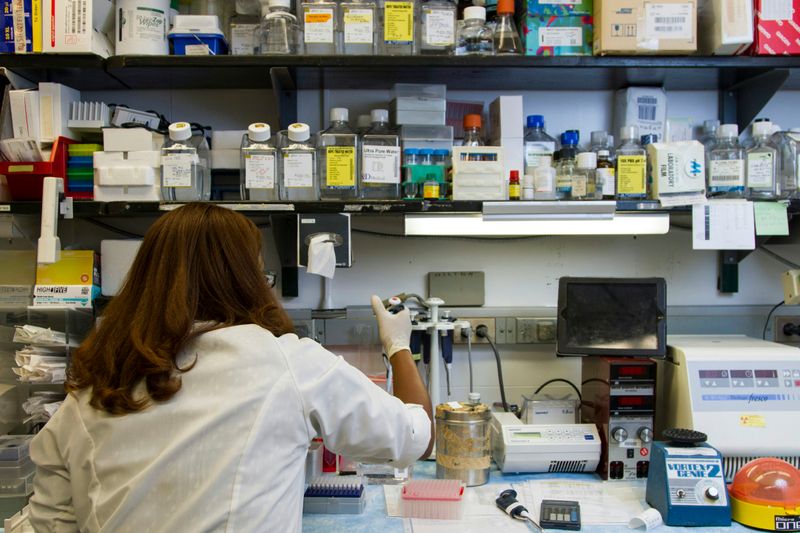Writing a strong hypothesis for academic research isn't just good practice — it's an essential part of the process. A strong hypothesis is more than a prediction. It's a guiding light for an experiment or study. It allows your audience to understand what you're doing and why you're doing it. Therefore, it must be carefully and deliberately made.
Let's use an example: Does the amount of sleep you get impact test scores?
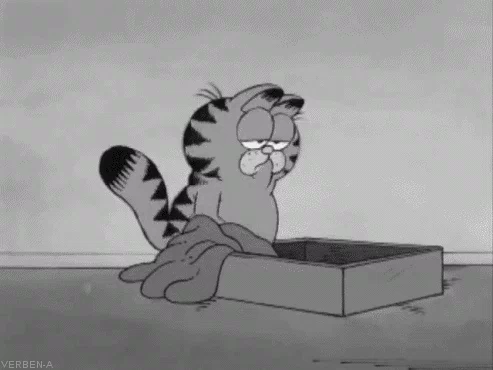
For our experiment, we'll split a group of participants in half, allowing one group to sleep for 8 hours and the other to sleep for 5 hours for one week. At the end of the week, we'll give both groups the same math test.
Hypotheses and the Scientific Method
Before we begin, where do hypotheses fit into the Scientific Method?
The Scientific Method is a repeating series of steps to guide you toward a data-driven and evidence-based result. The steps include:
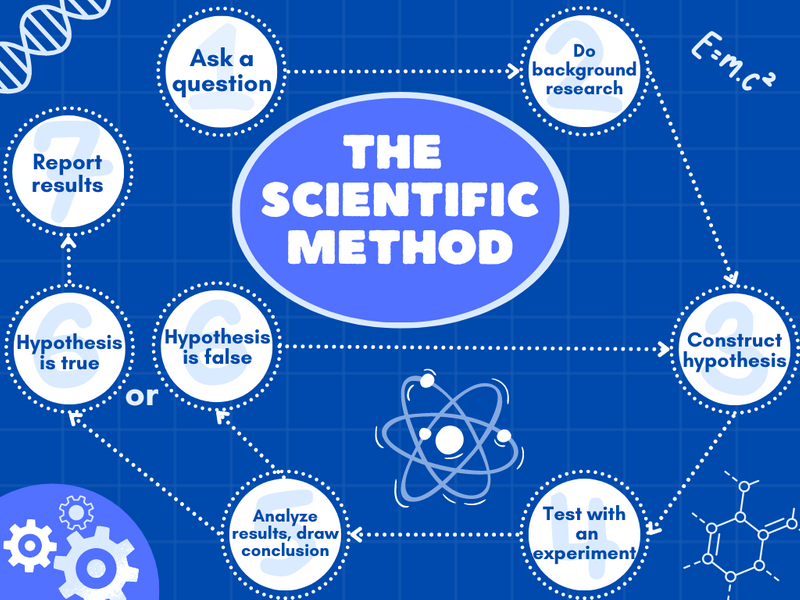 Image created by author using Canva. To hear an audio description, click play on the audio player below.
Image created by author using Canva. To hear an audio description, click play on the audio player below.
And the cycle repeats as long as it has to!
So, making a strong hypothesis based on data and research is essential because it will eventually guide your whole research project.
This is important to note because before you can even get to the step of writing a hypothesis, you first need to ask a question and conduct ample research.
Quiz
Sarah wants to write a hypothesis about whether or not an apple a day really does keep the doctor away. What will she need to do before she is ready? Select all that apply:
Hypothesis Definition
Okay, you’ve asked a question and have done your research, so now what is a hypothesis?
"A hypothesis is a research question that also includes the predicted or expected result of the research. [It must be] clearly and carefully constructed, any flaw can have an adverse, and even grave, effect on the quality of your experiment and its subsequent results."
It is important to note that a hypothesis is different from a standard research question in a few key ways:

A typical research question:
Doesn't include a prediction
Is usually open-ended
Promotes discussion and debate
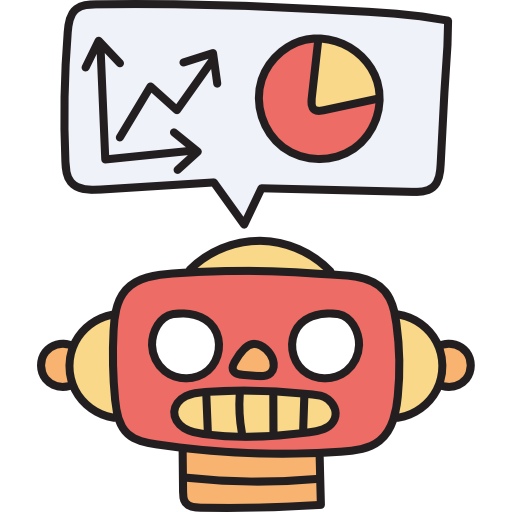
A hypothesis:
Includes a prediction
Tells the relationship between variables
Is specific, observable, and measurable
Quiz
Select the hypothesis from the statements below:
A Strong Hypothesis: Part 1
A strong hypothesis makes a prediction between the relationship of the variables and outcome of the project.
A variable is a factor in a scientific experiment that may be subject to change.
Good research only changes one variable at a time. This is to ensure that you can isolate and study the impact of only one variable at a time.
There are 3 main types of variables in academic research:
An independent variable is the factor you intend to change. A way to remember this is to say, “I change the independent variable.” In our sleep study, we're changing the amount of hours that each group sleeps at night.
A dependent variable is what you measure or observe. We're measuring the students' performance on tests in our study.
Think: the changes to this variable (test performance) depend on my independent variable (hours of sleep).
Finally, you have control variables. These are variables that don't change from trial to trial to protect the integrity of your results. Everything besides the amount of hours each group sleeps per night should be exactly the same: same mattress type, same temperature in each room, same test, etc.
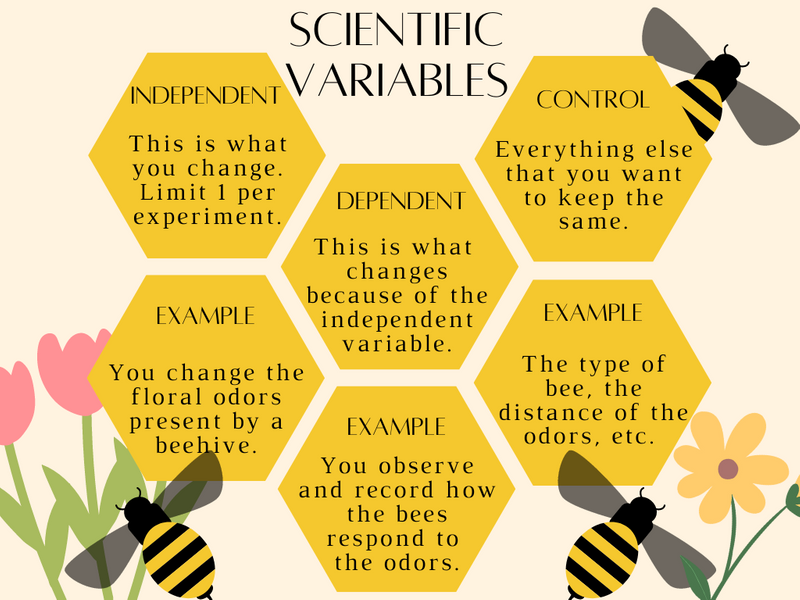 Image created by author using Canva. To hear an audio description, click play on the audio player below.
Image created by author using Canva. To hear an audio description, click play on the audio player below.
Example:
Students who sleep more will perform better on tests than those who sleep less.
This example shows what the researcher is controlling (the amount of time students sleep) and what they're measuring (test performance).
This is a good start, but we can make a better hypothesis.
A Strong Hypothesis: Part 2
A strong hypothesis is written in simple and precise language:
A hypothesis should contain only what is essential to guide your results. Don’t use 4 words where 2 will do.
There should be no room for vagueness. Be direct and to the point!
Also, don't make assumptions about your audience’s prior knowledge. State what you expect to happen and describe the relationship between your variables as clearly as possible.
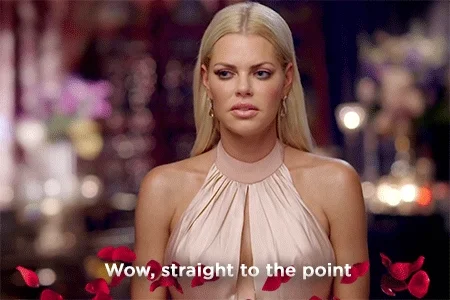
Let’s refine our example:
Students who sleep 8 hours or more will score higher on tests than their peers who sleep less.
This example tightens up our language surrounding "test performance" and makes the language clearer as to what we're measuring, which is test scores.
A Strong Hypothesis: Part 3
A strong hypothesis must include observable and testable results. This is what really sets a hypothesis apart from a simple prediction.
We make predictions all the time. We try to predict how books and shows will end, we try to predict the weather, and we try to predict what we’d like to eat throughout the week during our weekly shopping trip.
A hypothesis, however, must make an observable and testable prediction. You must be able to collect data to determine whether your hypothesis is true or not.
This is what makes good science that is supported by facts and evidence.

We’ll refine our example again:
Students who sleep more than 8 hours the night before a test will score higher than students who sleep less than 8 hours the night before a test.
This example is now written in a way that we can test, observe, and collect data to prove whether or not our hypothesis is true.
A Strong Hypothesis: Part 4
Finally, a strong hypothesis must be relevant and specific to the question or problem you are trying to solve.
This may seem like a no-brainer, but it is essential that your hypothesis is relevant to your research and nothing else!
Your audience must be able to quickly and accurately draw a connection between your hypothesis and your research. If they’re left scratching their heads wondering why you included something, that could easily snowball into them not understanding how your research addresses the problem or question you identified.

We’ll refine our example one more time:
Students who sleep 8 hours the night before a test will score higher on that test than students who slept 6 hours the night before.
This is the most direct example. It's written in plain language. It describes the relationship between the variables (sleep and test scores). We can test it, and it makes a prediction.
Hypothesis Format
There are two main ways to format your hypothesis.
The first way to format your hypothesis is to phrase it in terms of the effects that the variables will have on each other. You could also use this method to describe differences you expect to see between them. This is what we worked toward with our example above:
Example from before:
Students that sleep 8 hours the night before a test will score higher on that test than students who slept 6 hours the night before.
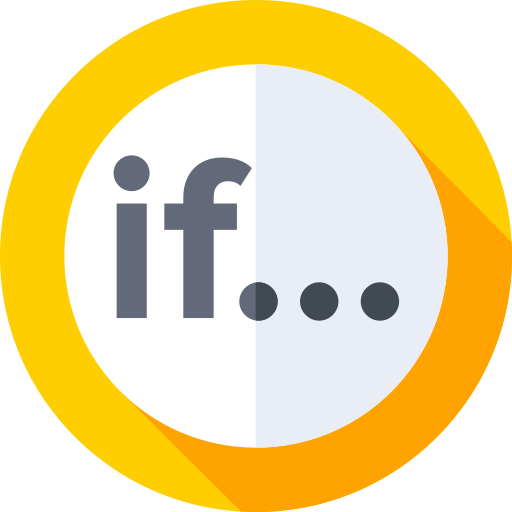

The second way to do this is the "If… then…"format.
This method is used when you want to make a prediction and to identify your variables. In this instance, the IF statement is your independent variable and your THEN statement is your dependent variable.
Example:
If some students sleep 8 hours the night before a test, then they will score higher on that test than their peers who slept for 6 hours.
Quiz
Select all that is wrong with this hypothesis: "Through extensive data collection using diverse methods inlcuding surveys and focus groups, this study aims to understand the complex dynamics influencing consumer behavior in modern digital markets."
Take Action
Your feedback matters to us.
This Byte helped me better understand the topic.


